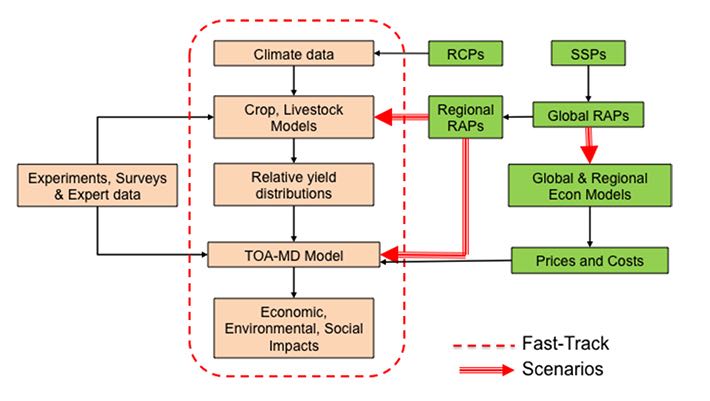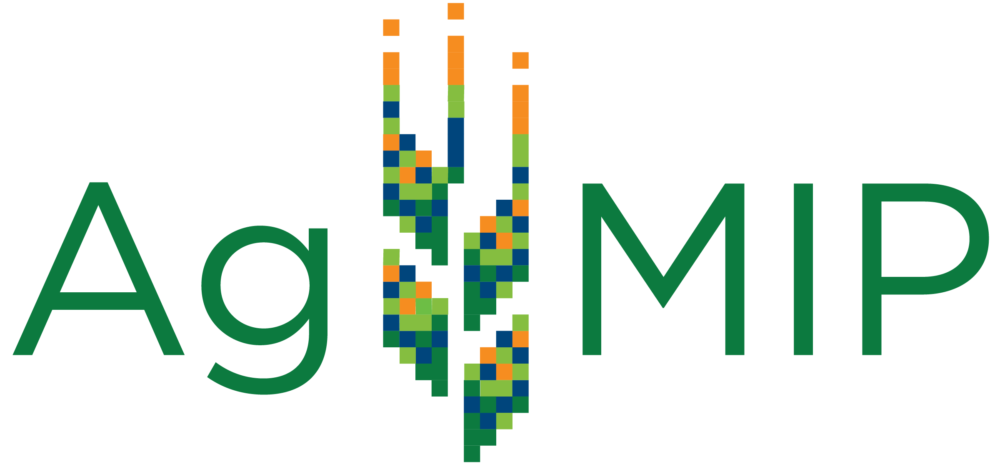Regional Integrated Assessments Handbook
Dec 20, 2012
AgMIP Regional Research Teams (RRTs) are conducting a series of activities to support integrated climate change impacts assessments for agricultural systems in their regions. These assessments are the regional manifestation of the research activities described by AgMIP in its online protocols document. AgMIP Protocols were created to guide the climate, crop modeling, economic, and information technology components of its projects. However, these AgMIP protocols do not address specific methods and procedures for integration across the components to achieve regional biophysical and economic assessments of climate change and agriculture. For this reason, the Regional Integrated Assessment Handbook was created.
AgMIP Regional Integrated Assessment Framework and Fast-Track:
Parallel development of system design, data and modeling to couple climate information, crop & livestock models, and the TOA-MD regional economics model. (from AgMIP Handbook v4)

The purpose of this document is to provide a guide of recommended methods for AgMIP regional projects in sub-Saharan Africa (SSA) and South Asia (SA) to achieve a series of integrated research results such that consistent outputs can be compared across regions and used to improve understanding of agricultural impacts of climate change (including biophysical and economic impacts) at national and regional scales.
The key regional research team outputs according to the handbook should be:
a. A network of sentinel sites where multiple crop models have been calibrated using locally representative data.
b. A set of Representative Agricultural Pathways (RAPs) for each region.
c. Characterization of historical climate and climate change scenarios (regional scale).
d. Evaluation of climate change impacts on crop yields and adaptation potentials.
e. Assessment of economic impacts.
f. Documentation for communication to the scientific community and to stakeholders.
The handbook also includes guidelines for the activities that all AgMIP regional research teams should carry out, among them: scoping of cropping systems and developing/refining research work plans, developing RAPs for climate change, analyzing economic impacts of climate change, and assembling existing data from experiments to calibrate crop models.
